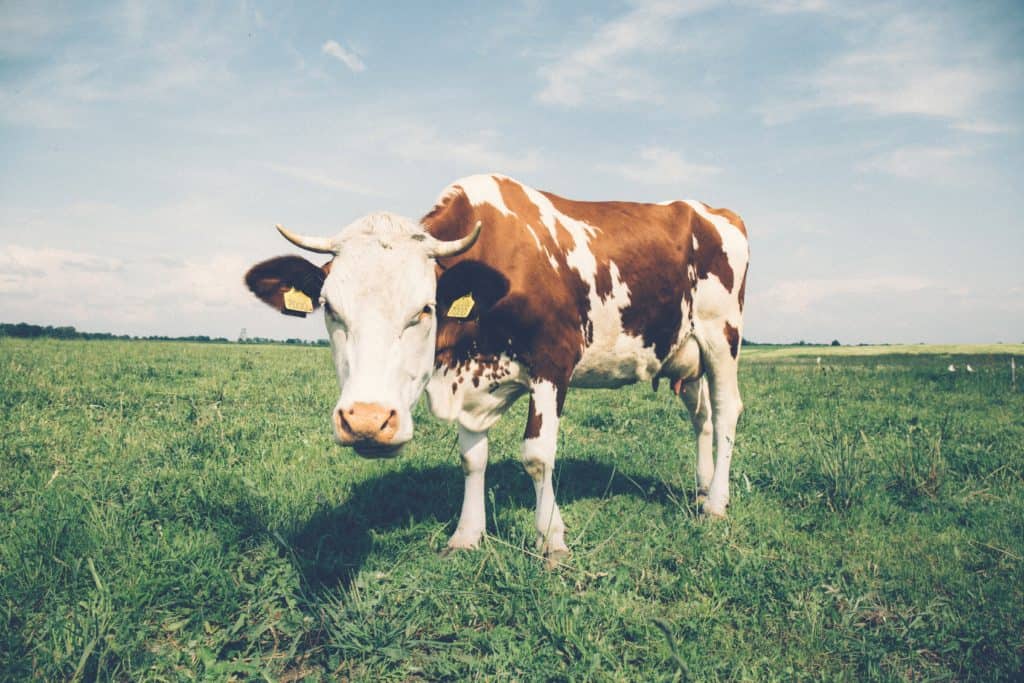
During a recent discussion with a professing atheist, I made the statement that genetic mutations do not add new genetic information to the organisms in which they occur, but rather lose, repeat, or scramble information that is already present.
I asked my atheist friend if he could give me any documented examples of a mutation creating brand-new information, to which he responded by pointing out adult humans’ ability to digest milk. Humans are the only creatures on the planet that consume milk into adulthood, as well as the only creatures that consume the milk of other kinds of creatures (cows, goats, etc.).
Isn’t this ability new genetic information?
Well, let’s have a look and find out.
Milk contains a sugar called lactose, that, in order to be absorbed into the bloodstream, has to be broken or “split” into two separate simple sugars: glucose and galactose. This is accomplished by means of an enzyme called lactase, which is produced in the lining of our intestines.
In a case of lactose intolerance, the person’s body does not produce enough lactase, making them unable to di-
gest milk, and consuming milk or milk products can make them very sick. This can happen for a few different rea-
sons:
In a few rare cases, a person is lactose intolerant because their LCT gene (the gene containing the instructions for lactase production) is mutated, making their bodies unable to produce any or enough lactase. In very rare cases, this can even happen from birth, resulting in a condition known as Congenital Lactase Deficiency.
Another cause may be surgery involving your small intestines; this can disrupt the production of lactase and create a case of what’s known as secondary lactose intolerance. But by far the most common cause of lactose intolerance is that, as we age, our bodies naturally slow down or stop the production of lactase by switching off the LCT gene. This is because, once we grow out of early childhood, we’re not dependent on milk for survival anymore—and it’s actually normal!
Around seventy-five percent of the world’s population becomes lactose intolerant as they age.
Most people with the ability to digest milk into adulthood (referred to as lactase persistence) tend to be of northwestern European descent; today, northwestern Europe has an average lactose intolerance rate of less than fifteen percent. Meanwhile, Asia, India, Africa, and South America show lactose intolerance rates of anywhere from thirty to one hundred percent.
So now that we know a bit more about lactose intolerance and lactase persistence, let’s get back to my atheist friend’s original question: Isn’t lactase persistence new genetic information and therefore evidence for evolution? The answer is, quite simply, no.
All mammals (excluding the aforementioned rare exceptions) are born with the ability to digest milk. Those of us who retain that ability into adulthood do so because our bodies failed to deactivate a gene we already had, not because we gained a new genetic feature.
This is actually a very interesting example of a beneficial mutation or a mutation that increases a species’ survival value. God has designed us in such a way that, when we expose our skin to direct sunlight, our bodies convert the cholesterol in our skin into vitamin D. But in a place like northwestern Europe, a region hit hard by the massive ice age that followed the global flood, a lack of sunlight combined with cold temperatures would have made it extremely difficult for humans to acquire enough vitamin D to stay healthy…because who wants to expose their skin when it’s freezing cold outside?
Milk is one of the very few foods that naturally contain vitamin D, in addition to being a great source of healthy fats—essential to survival, especially in a cold climate. So, with growing seasons short and food scarce, it would have been natural for people to begin searching for alternate sources of nourishment, and milk became that source.
Exactly how this happened, we don’t know for sure. If people began trying it as adults, many of them probably found that they weren’t able to digest it. Perhaps they began by giving it to their children—the most natural consumers of milk—and their children’s bodies remained acclimated to it even as they matured into adults. However it happened, it serves as an excellent example of the ability that God has given His creatures to adapt for survival, even in difficult environmental circumstances.
It looks like that milk mustache isn’t evidence for evolution, after all.
https://www.pcrm.org/health/diets/vegdiets/what-is-lactose-intolerance (Accessed 9/7/2018.)
https://ghr.nlm.nih.gov/gene/LCT (Accessed 9/7/2018.)
https://ghr.nlm.nih.gov/condition/lactose-intolerance (Accessed 10/9/2018.)
https://www.mayoclinic.org/diseases-conditions/lactose-intolerance/symptoms-causes/syc-20374232 (Accessed
9/7/2018)
https://www.healthline.com/nutrition/is-dairy-bad-or-good#section2 (Accessed 9/8/2018)
